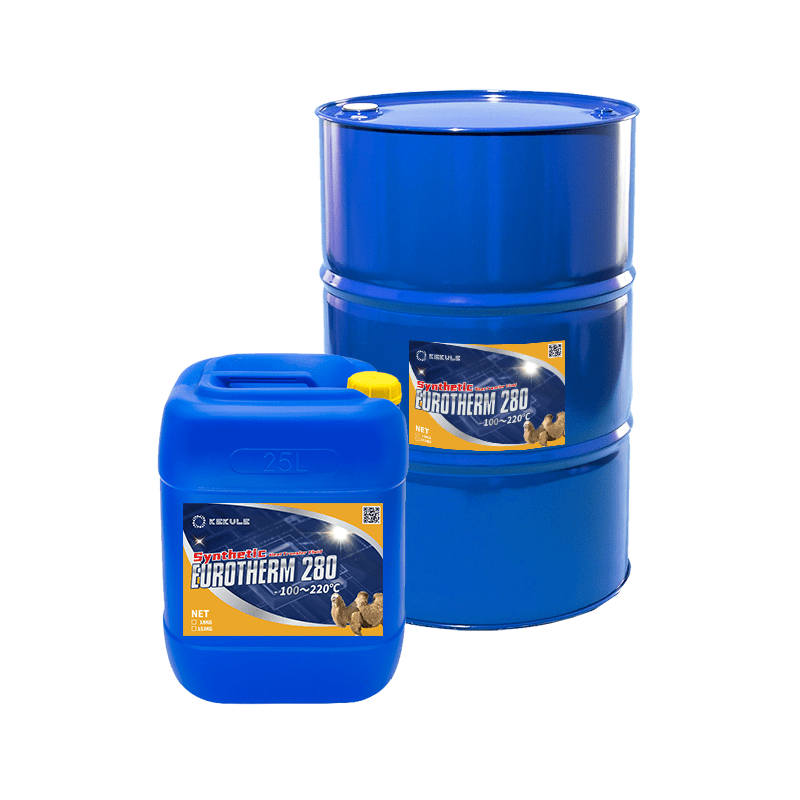Maximize Your System's Life expectancy With the Right Heat Transfer Fluid
Selecting the ideal warmth transfer fluid is essential for enhancing system performance and longevity. Understanding the numerous kinds of warmth transfer liquids and the particular requirements of your application can considerably influence the total health of your system.
Importance of Heat Transfer Fluids

Furthermore, heat transfer liquids add to the security and reliability of thermal systems. Additionally, the appropriate warmth transfer liquid can give protection versus rust and scaling, more expanding the life-span of equipment and infrastructure.
Kinds of Heat Transfer Fluids
Numerous types of warmth transfer liquids are frequently used in industrial applications, each customized to specific functional requirements and temperature arrays. One of the most widespread groups include water, oils, and specialized artificial liquids.
Water is typically used because of its exceptional thermal conductivity and schedule; however, its limitations arise at high temperature levels and potential freezing conditions. For higher temperature applications, thermal oils, such as mineral oils or natural substances, are used. These oils give exceptional thermal stability and can operate properly at elevated temperature levels, making them ideal for procedures like food handling and petrochemical manufacturing.
Synthetic liquids, which can be either inorganic or organic, are designed to fulfill specific performance criteria. They often exhibit improved residential or commercial properties such as low toxicity, large temperature ranges, and resistance to oxidation. Examples include esters and glycols, which are perfect for specialized applications like solar thermal systems and warm exchangers.
Additionally, refrigerants are made use of in cooling systems, leveraging their phase adjustment residential properties to absorb and launch heat successfully. Each kind of warmth transfer fluid is and provides unique benefits chosen based upon the details needs of the application, making sure optimum performance and system longevity.
Factors to Take Into Consideration When Picking
Picking the appropriate heat transfer liquid entails careful factor to consider of numerous elements to guarantee optimum performance and system efficiency. Among the main elements is the temperature level range needed for the system. Liquids differ in their thermal security and can shed or decompose effectiveness outside details temperature restrictions.
An additional crucial consideration is the fluid's thickness, as it influences pump performance and power usage. A liquid that is also thick may prevent blood circulation and rise functional costs. Additionally, the liquid's particular warm capacity plays an important function in figuring out exactly how effectively it can move warmth.
Chemical compatibility with system products is additionally important to stop deterioration, destruction, or leakages - silicone oil. Guaranteeing that the picked fluid works with the construction materials can lengthen go to this web-site the life expectancy of the system

Advantages of Appropriate Fluid Selection
Proper option of a warmth transfer fluid returns considerable advantages for system performance and reliability. The appropriate liquid boosts thermal conductivity, ensuring ideal warmth transfer prices within the system. This efficiency minimizes energy usage, leading to reduced operational prices and a decreased ecological footprint.
Moreover, proper liquid choice adds to system longevity by avoiding corrosion and deterioration of parts. Fluids formulated with rust preventions secure metal surfaces, thereby extending the life expectancy of pumps, pipes, and warmth exchangers. In addition, selecting a fluid with ideal viscosity ensures reliable flow, which is important for maintaining constant temperature level circulation throughout the system.
One more important benefit is the fluid's thermal stability. A stable warm transfer fluid can run over a large temperature array without damaging down or shedding efficiency, which is important for systems exposed to varying thermal conditions. Furthermore, the best liquid can additionally mitigate dangers connected to cold or boiling, consequently preventing operational interruptions.
Upkeep Tips for Longevity
Ensuring the long life of a warmth transfer system requires diligent maintenance practices that enhance the advantages of correct liquid option. Routine evaluations are vital to determine potential leakages, deterioration, or sediment build-up that can compromise system performance. Establish a routine timetable to assess pipe honesty, connections, and installations, as these areas are usually vulnerable to tear and use.

Keeping track of fluid levels and top quality is just as critical. Routinely check for indicators of contamination, look these up such as discoloration or particle matter, which can suggest deterioration of the heat transfer fluid. Carrying out regular liquid evaluation can give insights right into its chemical residential properties, permitting for timely substitutes when necessary.
In addition, maintaining ideal operating temperature levels is essential. Urge the usage of temperature controls and sensors to avoid overheating, which can increase fluid deterioration and damage system components.
Lastly, always adhere to the supplier's guidelines regarding fluid substitute intervals and maintenance procedures. By committing to these ideal methods, you can substantially improve the functional lifespan of your heat transfer system, guaranteeing reliable performance and minimizing the need for early replacements or expensive repair services.
Final Thought
In verdict, the choice of a suitable heat transfer fluid is crucial for enhancing system efficiency and longevity. By recognizing the numerous kinds of fluids and taking into consideration key aspects such as thermal conductivity and corrosion resistance, optimal performance can be attained.
Warm transfer liquids play a crucial function in numerous industrial and industrial applications by assisting in the efficient transfer of warmth in between surface areas.In addition, heat transfer liquids contribute to the safety and security and reliability of thermal systems. Furthermore, the fluid's certain warm ability you could check here plays a vital function in determining how efficiently it can move warmth.
The right fluid enhances thermal conductivity, making certain ideal heat transfer prices within the system. A secure heat transfer liquid can run over a broad temperature range without breaking down or losing effectiveness, which is important for systems subjected to fluctuating thermal conditions.